Jay Chou impersonator's bar tour sparks controversy
In China, Jay Chou is an unparalleled figure in contemporary Mandarin music. He has created countless popular songs and also represents the cherished memories of people's youth. After the pandemic ended in 2023, Jay Chou embarked on Carnival tour that brought billions of yuan in revenue to various cities, showcasing his vast influence.
With the advent of short video apps and social media, many Jay Chou impersonators have gained significant online followings. Among them, a top impersonator known as "黑伦” - Heilun - has even started his own bar tour across cities.
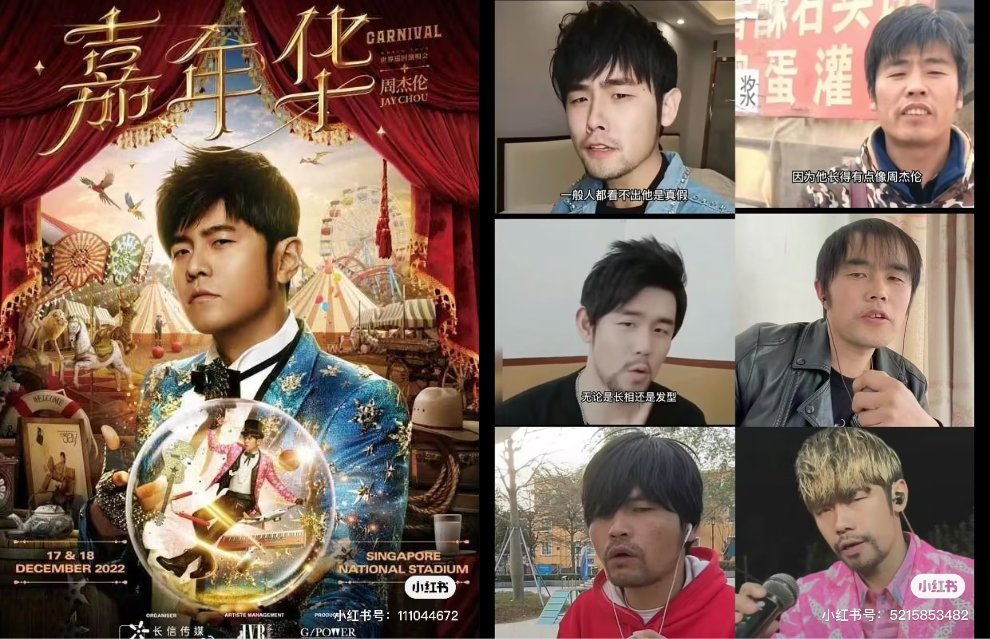
On the left is Jay Chou's Carnival concert poster, and on the right are online impersonators. Images are from RED.
Heilun initially attracted a considerable following on Douyin by closely resembling Jay Chou in terms of vocal tone, makeup, and hairstyle. Not only is he able to roughly imitate Jay Chou's peak-period vocal style, but he can even perfectly replicate his posture and dance moves, among other aspects. Riding on the popularity of Jay Chou's offline concerts, Heilun has seen a continuous surge of online traffic as well.
Heilun once performed Jay Chou's songs on the street, bearing a strikingly similar voice with powerful vocal dynamics. Video from RED.
In mid-June, Heijun unexpectedly announced a bar tour across several cities in China including Foshan, Suzhou, Hangzhou, Taiyuan, and Xi'an. At one venue, the VIP booth prices even exceeded ¥6,000 ($827), far surpassing the ticket prices for Jay Chou's concerts. Despite strong discontent from many of Jay Chou's die-hard fans regarding his potentially IP-infringing covers, chat records shared by users on RED indicated that bars mentioned "VIP booths are almost sold out." It all looks to be a very lucrative market.
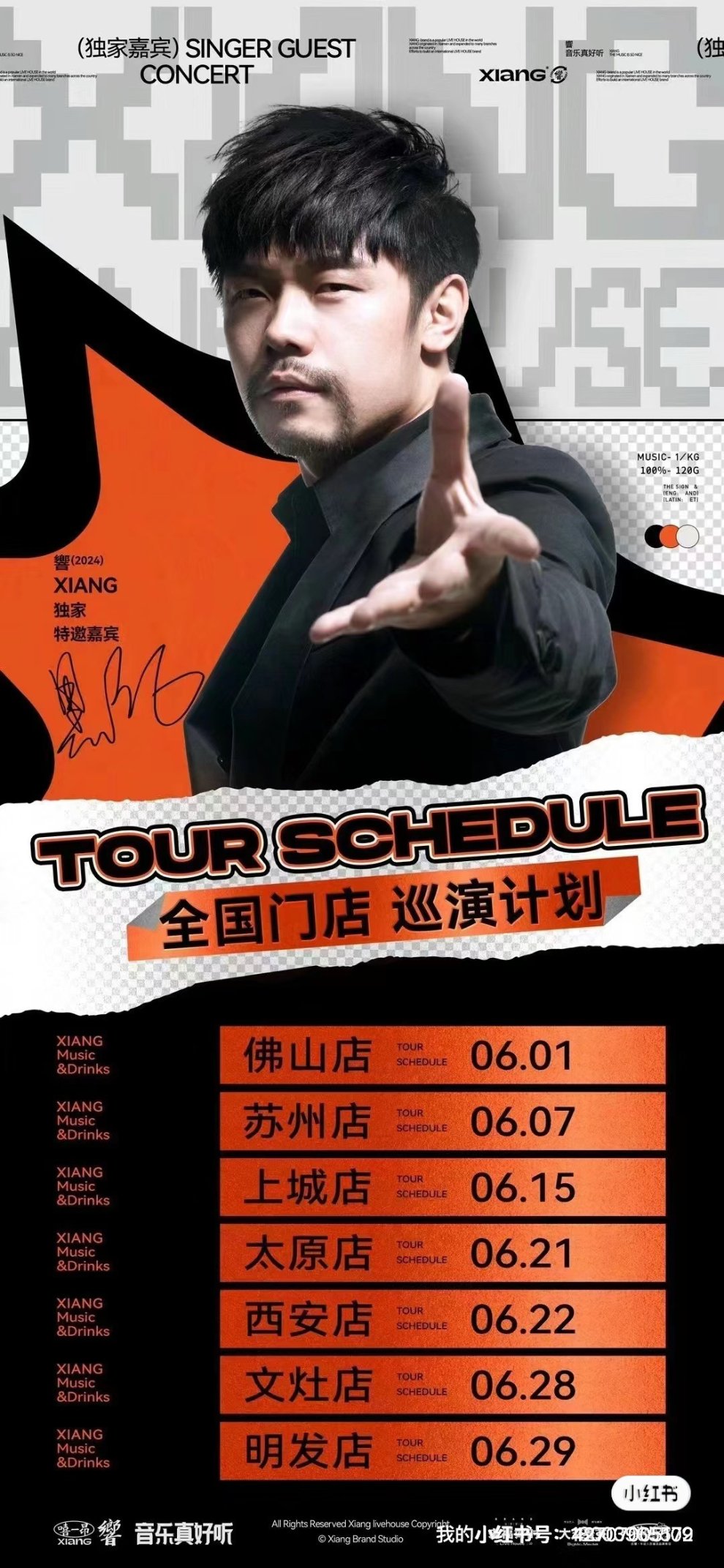
The tour posters of Heilun and the promotional videos created by bars for him. Some die-hard fans of Jay Chou expressed their dissatisfaction on RED and stated that they would seek legal action. Image and video are from RED.
Despite the significant copyright controversies surrounding these impersonation shows, the number of imitators targeting top-tier pop stars and celebrities on Douyin is steadily increasing. These imitators closely resemble the stars in appearance, style, and voice. Moreover, the commercial performance earnings of these knock-off celebrities often surpass those of many second or third-tier stars. At present, this "underground music market" is growing rapidly, showing no signs of decline.
Elderly influencers provide a counter-narrative to China’s intense work culture, proving that seniors can live life on their own terms, which is proving endearing to young Chinese consumers often labelled as “fragile youth”
A concise yet holistic summary of February 2025’s key marketing developments in China, highlighting valuable insights and their implications for brands.
The record-breaking triumph of Ne Zha 2 confirms that compelling storytelling, rooted in Chinese culture and reflective of current societal sentiment, can profoundly influence consumer behaviour.
A Harper’s Bazaar campaign featuring hotpot CEOs is a testament to the power of blending fashion, culture, and business leadership. It not only redefines the role of CEOs in branding but also highlights broader trends in cultural revival, emotional connection, and experiential marketing.
Social media feeds increasing filled with “rough life” posts, alongside the popularity of more authentic retail spaces are just two examples of how Chinese consumers are seeking more real, less polished marketing
China Skinny’s review of key marketing trends and lessons we observed over the month of October 2024.
Moncler invested $28 million in the one-day "The City of Genius" event in Shanghai, blending global vision with local creative culture. For foreign luxury brands, the Chinese market remains unparalleled, and Moncler’s showcase sets a powerful example of how to captivate and inspire younger Chinese consumers.
Traditional collectibles have become a form of social currency among young people. From spiritual comfort to stylish accessories, livestreams and e-commerce have made these pieces more accessible. And people watch appraisal livestreams for whacky collectibles as an entertainment.
Wukong is a huge deal in China, not just being the first AAA game and record sales and players, but for its wider impacts on consumer behaviour and branding opportunities
Founded in 2019, Tiaohai Village (跳海酒馆) is a community-driven pub brand. Despite having around 30 locations nationwide, it's said to have achieved over ¥100 million ($14m) in revenue in 2023, together with over 200 highly active online alcohol communities. Check it out to learn about what sets Tiaohai apart from other pubs and how it truly connects with Chinese young people emotionally.
On August 20, the game Black Myth: Wukong officially launched. As China’s first 3A title, it has not only taken the Chinese gaming industry, social media, and stock market by storm, but has also gained worldwide attention.
Chinese movie theatres live-streamed the Olympics’ opening ceremony and events for the first time, filling up with young people captivated by the experience
China has an estimated 330 million female gamers, accounting for nearly half of the gaming population. This year, the commercial potential of Otome games—romance simulation games designed for female players—has become evident. Many brands, from food to beauty, have started collaborations with Otome games.
New types of bloggers called matchmaking analysts - the Sherlock Holmes of the dating world - are capturing much attention in China’s social media. There are the reasons for their popularity, but also concerns…
The opening ceremony of the Paris Olympics, along with other parts of the Games, hasn’t been without controversy, but Chinese brands like Yili, HEYTEA and Kuaishou have capitalized on the interest of the spectacle to launch impressive marketing campaigns.
Have you watched the hit TV series The Tale of Rose that premiered this June? High-quality TV series like these offer a fantastic opportunity for brands to achieve their marketing goals in China. Check it out to see how they help brands make an impact.
With the explosive popularity of Jay Chou's Carnival Tour, his impersonators have also started their own live tours with super-expensive VIP tickets almost sold out
Zhou Guanyu, China’s first ever F1 driver is a valuable commodity for brands in China, including lululemon, McDonald’s, Puma, Dior, Hennessy and HSBC
AI influencers are shifting hefty sales volumes n Douyin, but on close inspection there are some tell-tale signs that they are not real people
Is tufting going to be the next big thing for Chinese consumers? Haidilao in Hangzhou thinks it could be
A low-cost experience in cinemas made Shining For One Thing become the quickest Chinese film to hit ¥100m in presales
Here is a tale of three brands, each who have seen quite different outcomes in China over the past-12 months. They provide valuable lessons in public relations (PR) in China's increasingly sensitive and less tolerant consumer market.
By every measure, winter sports are booming in China leading into Beijing's Winter Games, presenting a multitude of opportunities for brands
U.S. studios' share of box office continues to shrink, which may contribute to nationalism in both China and the West
Although geopolitical challenges and nationalism are on the rise, the traditionally-foreign holiday of Christmas is as large as ever in China
Don't underestimate the importance of bricks & mortar touch points in China, and ensure they are integrated and optimised for consumer needs
Beijing's Common Prosperity is impacting the ways brands market in China
Singles' Day grew again this year against all odds, with some interesting data indicating why
Sustainability is becoming a key requirement of doing business in China - both due to consumer-pull and Beijing-push








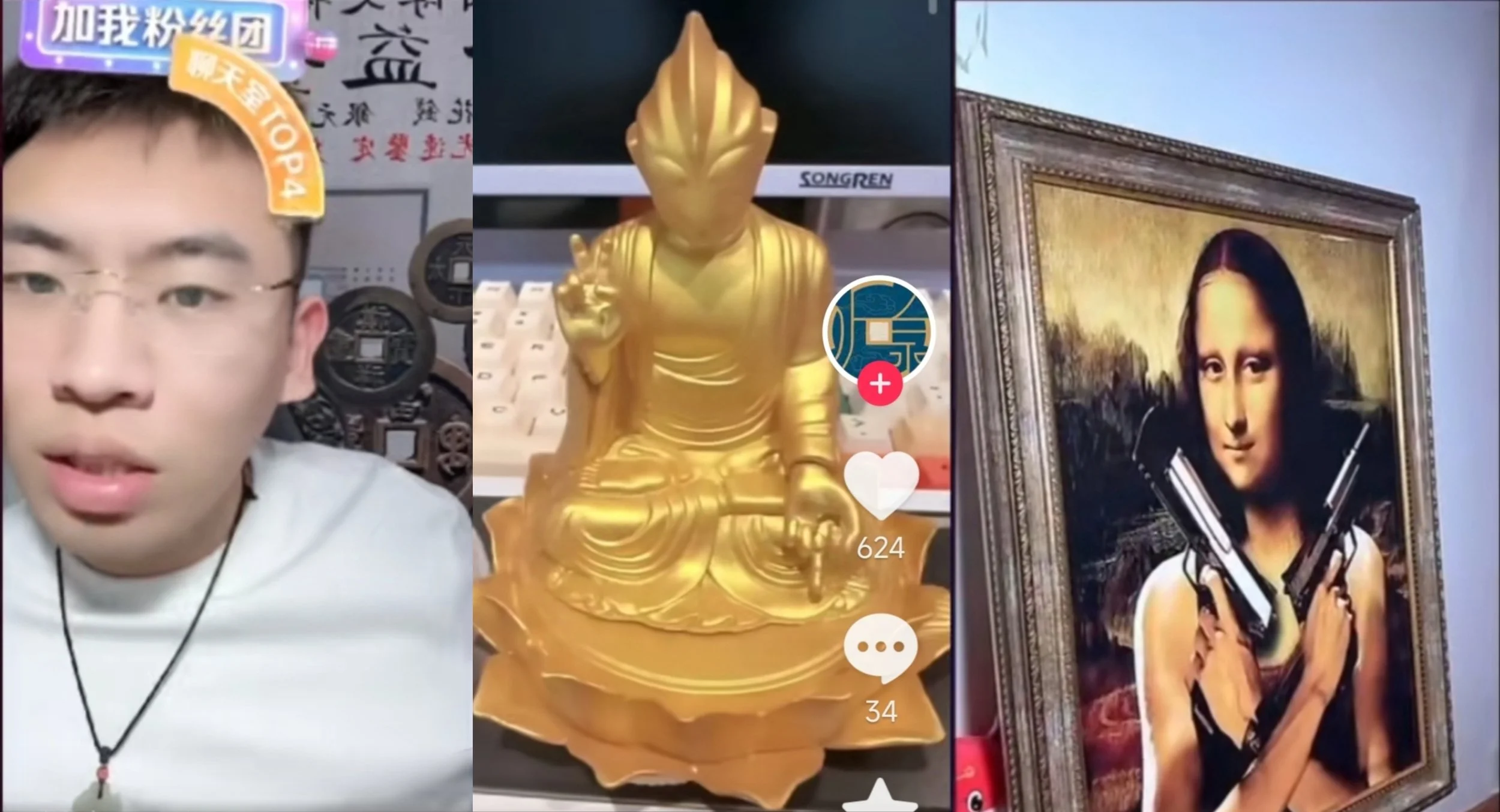



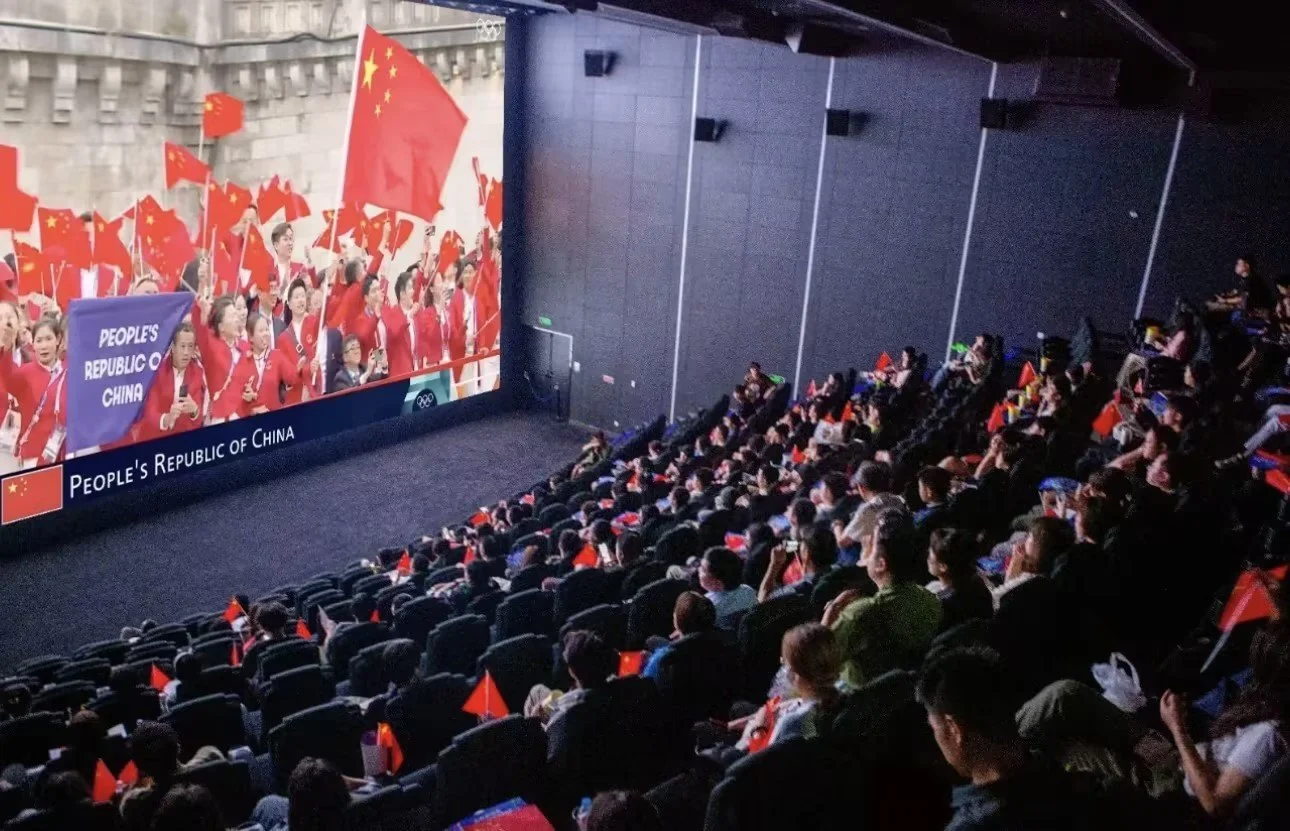




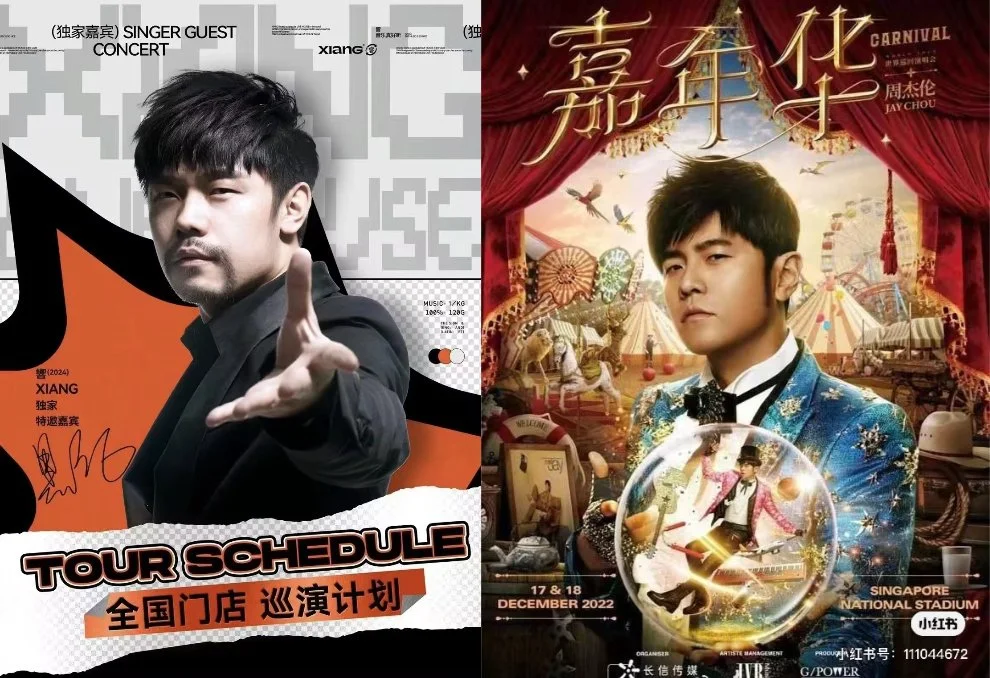




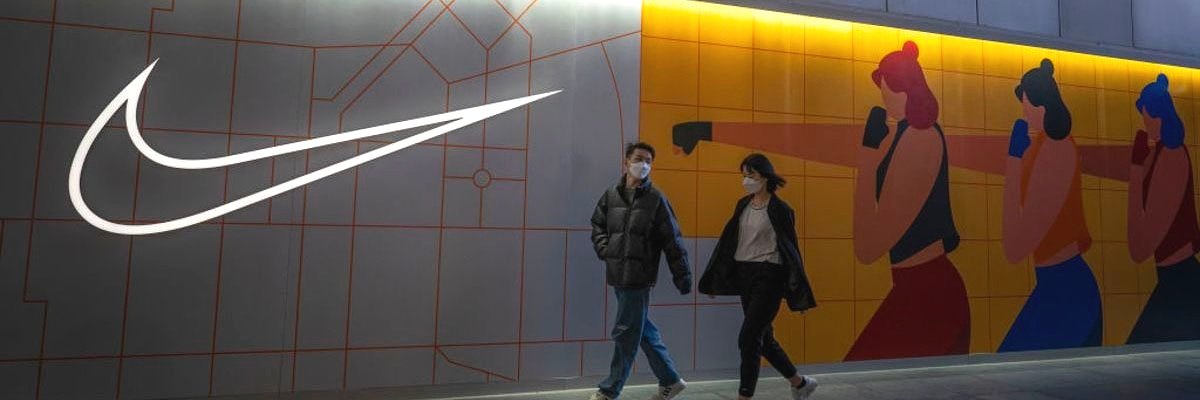







It was March 2021 when the EU-China agreement protecting geographical indications (GIs) came into force. This aimed to recognise and protect around 200 distinct agri-food producing regions. It included well known specialties such as Feta, Prosciutto di Parma, Irish whiskey, Münchener Bier and Ouzo from Europe and Pixian Bean Paste, Anji White Tea, Panjin rice and Anqiu Ginger from China.